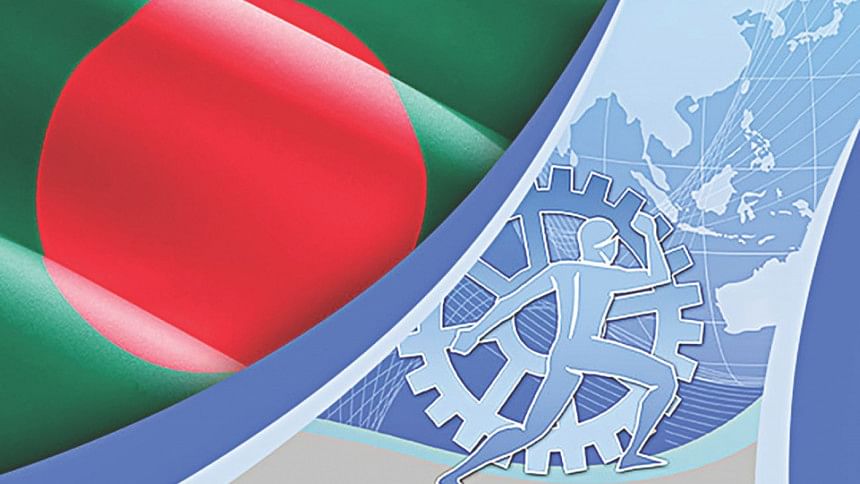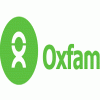Reading behind the numbers

We have some good news to cheer. According to a report published by the World Economic Forum (WEF) Bangladesh has become more competitive in 2017 as compared with 2016. According to WEF's Global Competitiveness Report 2017-18 (GCR), Bangladesh was ranked 99 out of 137 (as compared with 106 out of 147 last year) in terms of Global Competitiveness Index (GCI) which is recognised as a proxy for a country's investment environment and attempts to capture the robustness of "institutions, policies, and factors that set the sustainable current and medium-term levels of (its) economic prosperity." The ranking, along with a survey result from a sample of business leaders, provides a consistent set of indicators to track our competitiveness in the global economy. While the improvement in our ranking bodes well for us, the report at the same time identifies areas where we need to work harder in the coming years to enhance the business climate.
GCI for Bangladesh is constructed by computing indices on 12 "pillars of competitiveness". GCR provides three types of numbers. First is the ranking of a country among its peers. This year 148 countries were included in the survey and Bangladesh was ranked 99 out of 137. The second measure that GCR provides is an index, on a scale of 0-7, on various indicators of economic and business climate. Bangladesh scored 3.9 out of 7 in the latest overall ratings with improved scores across all the 12 factors. Finally, it offers for each country, a list of the most problematic factors impeding its business development. For Bangladesh, the top two are corruption and lack of adequate infrastructure.
For this commentary, I will focus on three areas related to the latest GCR: What contributed to Bangladesh's jump from 106 to 99; what are some of the factors that still keep us less competitive than most of our South Asian neighbours; and finally, what is known about the most anti-competitive elements affecting our economy, namely corruption.
Bangladesh's improved ranking is undoubtedly good news, but one needs to point out that such improvement or deterioration in a single year is not unprecedented in the last decade. The real issue is, are we consistently moving up or down, or is this year's numbers just a "flash in the pan"? We jumped eight notches in 2013-14 (110/148) from the previous year (118/144), and have also managed to regress from 92 in 2007 to 118 within five years. This time, our ranking improved mostly due to better conditions in market size (our rank 38) and macroeconomic environment (56). Next, let us ask, why do we rank last but one among South Asian countries? The scores in three areas offer some clues. We scored below 3 (out of 7) in Infrastructure (2.9), technological readiness (2.8) and innovation (2.8).
According to WEF, corruption and "inadequate supply of infrastructure" are listed as the two most serious issues affecting business. This result comes from WEF's Executive Opinion Survey in which 87 respondents were asked to select the five most problematic factors for doing business in Bangladesh, and to rank them between 1 (most problematic) and 5.
The list in the Opinion Survey include the following: Corruption, inadequate supply of infrastructure, inefficient government bureaucracy, Iiadequately educated workforce, poor work ethic in national labour force, access to financing, policy instability, tax rates, government instability/coups, crime and theft, tax regulations, insufficient capacity to innovate, poor public health, foreign currency regulations, and inflation. It is noteworthy that in all the studies done in recent years, corruption and poor state of infrastructural development have always been identified as key factors dragging down our growth potential. One thing to notice is that while we do make investments in our infrastructure, it still remains a bottleneck for the business sector. What that means is that supply has not been able to keep pace with demand for infrastructure services.
Let me now turn to the related areas where we can, with some effort, improve the business environment, viz., corruption. Corruption is consistently ranked in GCR as problem number one! Survey respondents were asked to offer their judgment on how common it is for firms to make undocumented extra payments or bribes connected with (a) imports and exports; (b) public utilities; (c) annual tax payments; (d) awarding of public contracts and licenses; (e) obtaining favourable judicial decisions. In this respect GCR reaffirms what other studies and reports have found. Transparency International, Bangladesh (TIB) and the US State Department's Investment Climate Statement have reported that the level of corruption is not getting any better.
As can be expected, the average person, who is less resourceful than a business, faces a situation that is much worse. A TIB survey found that the top example of corruption in Bangladesh was paying a bribe to secure a job and was cited by 45 percent of respondents.
I end this brief commentary on a happy note. It appears that while some sections of the business community have in the past pushed back against stricter enforcement of labour laws, GCR survey gives "restrictive labour regulations" a low ranking. This seems to contradict the anti-union position taken by garments owners. On weak ICT infrastructure, GCR offers the following word of caution, "Upgrading ICT infrastructure and increasing ICT use remain among the biggest challenges for the region: Over the past decade, South Asia has been the area where technological readiness stagnated the most, with a performance similar to that of sub-Saharan Africa." Recent initiatives taken by the government on this front can only help Bangladesh address some of these challenges.
Dr Abdullah Shibli is an economist and Senior Research Fellow at International Sustainable Development Institute (ISDI), a think tank based in Boston, USA.









Comments